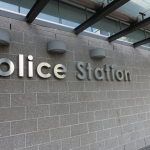Drug Detection Dogs Reportedly Providing False Leads

It has been revealed that the majority of strip searches by police based on indications from drug detection dogs do not result in any drugs being found.
Government data obtained by the NSW Greens and reported in the media reveals that in more than 60% of the searches carried out in 2013, no drugs were found.
NSW legislation states that the police can’t perform a strip search, or any other type of search on a member of the public, unless they have a “reasonable suspicion” to believe that the person is carrying drugs.
Sniffer dogs are considered to provide a factual base for suspicion, which makes it acceptable for police to conduct searches.
But as the figures show, this isn’t always the case.
The inaccuracy of drug detection dogs has been widely reported for years, including in a 2006 review of the dog program by the NSW Ombudsman, but nothing has been done to change the law.
In that review, the Ombudsman found that people were being searched without any drugs being detected, and that sniffer dogs were not an effective tool in targeting drug dealers. He recommended that the program be halted.
Searches intrusive and humiliating
Being searched, especially being strip-searched, can be humiliating and distressing.
Even less intrusive forms of search can be distressing and embarrassing if they take place in public, and can lead to members of the public feeling harassed and intimidated.
Although sniffer dogs are used in a number of different locations across Sydney, there seems to be little consistency, with figures showing that people are six times more likely to be searched in the inner city suburb of Redfern than they are at Central Station – even though the two locations are only one train stop apart.
Sniffer dogs are used more intensively at events like music festivals and at stations and public transport hubs, which means that people who are in those areas could be being unfairly targeted.
In 2012, police powers were also extended to increase the use of sniffer dogs in areas like Kings Cross, and this intrusive form of policing would appear to be spreading across Sydney in particular.
Do sniffer dogs reduce drug use?
Although the number of searches taking place has increased rapidly over the last few years, the number of drug users hasn’t decreased.
NSW actually reported an increase in the rate of illicit drug use, which indicates very little if any disruption in drug supply as a result of the increased use of drug detection dogs and invasive searches.
Additional risks have been associated with the presence of sniffer dogs at events like music festivals.
Last year, a man died at a Sydney music festival after overdosing by taking all the drugs he had on his possession at once after seeing the police with drug detection dogs.
This is believed to be fairly common behaviour among people who may be in possession of a small amount of drugs for personal use, and become concerned at the sight of drug detection dogs at the gates to an event.
Concerns have also been raised that the increased use of sniffer dogs could lead drug users to move from using drugs like cannabis to more harmful drugs such as ecstasy, because they believe these drugs are less easily detected by sniffer dogs.
The general demeanour of police officers towards those being searched has also raised concerns that their powers are being misused, and could potentially pose a threat to the safety of the community if allowed to continue.
NSW Police rejected calls for sniffer dogs to be banned.
Police also rejected the claim that drug dogs are not effective, saying that drugs are found or people admit to having contact with drugs in 80% of drug dog indications.
But while police say that drug detection dogs are accurate, all the evidence would suggest that drug detection dogs are actually unreliable and ineffective, and in some cases can do more harm than good.






